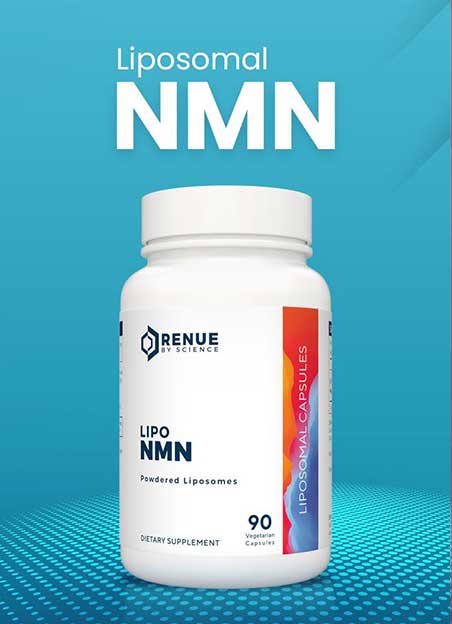
If you are in the market for a skin-care product, you are very much likely to pick up one that contains hyaluronic acid. You will find hyaluronic in most skincare categories such as moisturizers, cleansers, serums, etc.

There is a reason that hyaluronic acid is so ubiquitously available in all skincare products: it decreases the signs of aging in the skin, reduces wrinkles, and moisturizes the skin thoroughly.
What is Hyaluronic Acid?
Hyaluronic acid is an essential substance naturally present in our skin. It is usually found in the connective tissues of the body.
It comprises a sugar molecules group known as polysaccharides. The main purpose of these molecules is to lubricate and cushion.
As humans age, the stores of hyaluronic acid in the body start declining. While aging plays a big factor in this decline, other factors such as air pollution and smoking also play their parts in speeding up the process.
However, there are ways you can replenish these hyaluronic acid stores through supplements, moisturizers, and serums.
Types of Hyaluronic Acid
In total, hyaluronic acid comes in three forms:
Hydrolyzed Hyaluronic Acid
This type of hyaluronic acid is usually used in skincare products because it comes in fine particles form that has the ability to penetrate human skin. Hydrolyzed Hyaluronic Acid provides moisturizing action to the skin but only in moderation. People with combination or oily skin find this useful because their moisturizing needs are usually moderate.
Sodium Hyaluronate
This is the second type of hyaluronic acid. It differs from the first option because it has the ability to go deeper into the human skin but its impact is comparatively short-lived than the other options. This type of hyaluronic acid is perfect for people with normal skin because it moisturizes the skin without lasting effects.
This type is mostly used in serums made for skincare purposes.
Sodium Acetylated Hyaluronate
The last type of hyaluronic acid provides all the benefits of sodium hyaluronate but differs in the length of its impact. It produces results that last longer. This hyaluronic acid suits those from dry climates and naturally dry skin.
Apart from these three choices, ingestible hyaluronic acid supplements have also generated a lot of interest in research over the last few years.
Hyaluronic acid supplements provide long-lasting and steady effects, as per a 2017 study. According to the authors, over the course of 12 weeks of the study, those taking 120 mg of hyaluronic acid showed a significant improvement in their overall skin condition while their wrinkles also improved.
Benefits of Hyaluronic Acid
Healthy Skin

The most important benefit of Hyaluronic Acid lies in the hydration activity that makes the skin healthier and gives it a more supple feeling. More than half of hyaluronic acid is present in our skin where it retains moister by binding itself to water.
If the skin gets exposed to pollution, smoke, tobacco, and the sun’s UV radiation, the skin can get damaged. It can also be damaged during the aging process.
These damages can be alleviated with the help of hyaluronic acid supplements which replenish the stores of the acid in the body, thus allowing the skin to flourish in the aggressive environment,
In a study examining the impact of hyaluronic acid on dry skin, it was established that hyaluronic acid can help reduce dry skin in adults significantly with the help of 120 to 240 mg doses for a month.
When the skin is properly hydrated, wrinkles on the face and on the rest of the body may also appear to be reduced. That is why hyaluronic acid supplements can make the skin look relatively smoother. This was established in a double-blind study where 12-week long dosing of 120 mg hyaluronic acid alleviated the appearance of wrinkles significantly among the participants.
Hyaluronic acid serums also have the ability to fight dermatitis, redness, and wrinkles, when they are applied to the skin directly.
Healing Wounds
Another important function of hyaluronic acid in the body is concerned with healing wounds.
Since the acid is already present in the skin naturally, providing moisture, it stands to reason that it would play some part in repairing skin as well. The need for hyaluronic acid increases when a wound needs healing.
The acid helps heal the wound in the following ways:
- Hyaluronic acid regulates the inflammation levels in the affected part of the body, thus letting the body know that there is a need to repair blood vessels.
- Other than that, studies have shown that hyaluronic acid is also effective in the pain management of wounds. Compared to no treatment or placebo, hyaluronic acid significantly reduced the pain of the wounds in much less amount of time.
- The antibacterial qualities of hyaluronic acid also decrease infection risks in the wounds, especially if the acid is exposed to the wound directly.
Other than that, a systematic literature review has shown that hyaluronic acid has also been proven in dealing with mouth ulcers, the healing process after dental surgery, and battling gum diseases.
The oral supplements of hyaluronic acid are likely to increase the concentration of the acid in the cells. That is why it can be inferred that similar benefits can be afforded from the oral supplementation of the acid.
Benefits for the Eye

Most of the benefits of hyaluronic acid are tied to its ability to trap moister for our bodies’ use. The same is true for its benefits to the eye.
Dry eye is a common condition among adults. Around 14 percent of people suffer from conditions related to tears evaporation or decreased production of tears.
Hyaluronic acid has the ability to retain moisture which makes it perfect for treating dry eyes.
Studies have shown that hyaluronic acid is highly effective in improving general eye health and reducing the symptoms of dry eyes, especially when the eye drops contain 0.2 to 0.4 percent hyaluronic acid.
Since hyaluronic acid has moisturizing qualities, a possible treatment for dry is being developed in the form of content lenses that slowly release hyaluronic acid.
Furthermore, eye surgery also sees extensive use of hyaluronic acid in order to speed up healing of the wound and to reduce inflammation.
Other Benefits
Apart from the benefits discussed above, hyaluronic acid also boasts a range of other benefits. Some of these benefits have been discussed as follows:
- Soothing symptoms of acid reflux: hyaluronic acid has been proven effective in reducing the symptoms of acid reflux in some studies. The study showed that using this in conjunction with acid reflex medication improved the efficacy by 60 percent.
- Relieving joint pain: hyaluronic acid has also shown promise in reducing joint pains. Studies have found that the acid works by lubricating the bones in the joints. It also reduced pain in patients with osteoarthritis.
- Bone strength: in animal studies, hyaluronic acid has been effective in slowing down osteopenia. This is the stage before osteoporosis when the bone loss just begins. It helped restore bone density to some level.
- Painful bladder syndrome: hyaluronic acid has also shown promise in treating bladder pain due to painful bladder syndrome or intestinal cystitis.
Thus, the vast range of benefits of hyaluronic acid makes it an excellent supplement to consider to fight aging.
Liposomal Hyaluronic Acid
If you are taking a hyaluronic acid oral supplement, it might benefit you to look at the liposomal options available in the market. Liposomes comprise phospholipid layers that encapsulate the ingredient inside to better protect it from the highly acidic environment of the stomach.
One of the biggest concerns with oral hyaluronic acid has been that it is a big molecule which makes its absorption much more difficult. Furthermore, taken directly, the supplement is also not highly bioavailable.
Liposomal hyaluronic acid circumvents these issues by trapping the molecules in the lipid layer, protecting them from the harmful environment, and extending their half-life inside the human body.
Furthermore, hyaluronic acid also has a greater absorption rate as compared to non-liposomal supplements. The liposomal layer merges with the cell membrane, allowing the internal contents to be delivered to the cell with greater ease.
As a result, you can have a higher absorption rate and have a more bioavailable product for the same doses.
Frequently Asked Question
Following are the answers to the most frequently asked questions about hyaluronic acid.
1. Is hyaluronic acid safe to consume?
Hyaluronic acid has been tested for safety several times, both in serum and oral supplementation forms, and has been proven perfectly safe for consumption.
2. How much hyaluronic acid I should be taking?
The correct dosage of hyaluronic acid depends upon the reason you are taking the supplements. In general, 150 mg of liposomal hyaluronic acid is enough per dose. You may need higher doses if you are taking it for a specific condition requiring higher doses.
3. Who should avoid taking hyaluronic acid supplements?
People with a history of cancer should avoid taking these supplements because some studies have pointed towards the potential of the acid in facilitating the growth of cancer cells.
Also, if you are pregnant, breastfeeding, or have scleroderma, you should consult with your doctor before taking supplements for hyaluronic acid.






